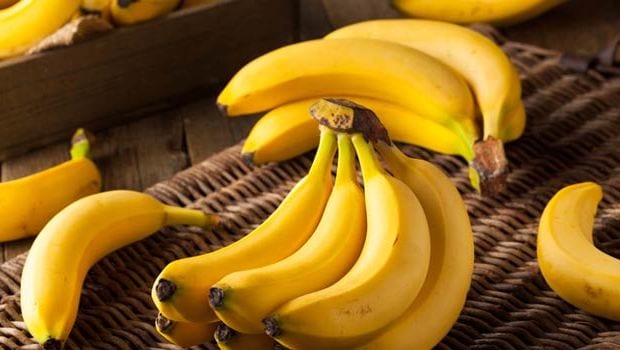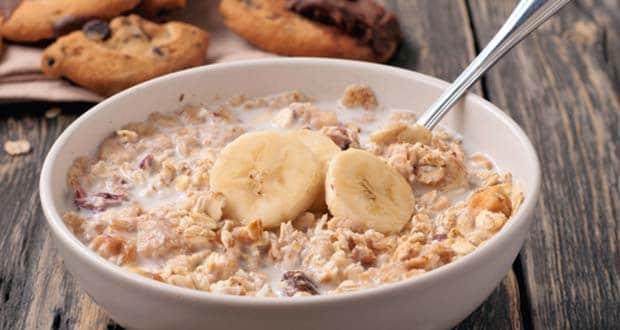Who wouldn't love eating a banana? It's an easy-to-grab and hassle-free fruit to gorge on when we are pressed for time, especially in the morning. Moreover, the humble fruit is lauded for its taste and numerous health benefits that it has to offer. According to the book, 'Healing Foods' by DK Publishing, bananas are extremely versatile. They are rich in potassium, which is essential for maintaining blood pressure, and are natural antacids, which makes them a soothing and healing choice for an upset stomach. While it may be the 'perfect' fruit for many, it has become the centre of much debate regarding constipation. Some people believe bananas cause constipation, while others swear by them to help relieve it. It's a common notion that infants shouldn't be fed with bananas as their weak digestive system may not be able to handle too much fibre, causing irritation in the tummy. Here's what we found out.
(Also Read: 6 Best Fruits To Manage Constipation)
According to Macrobiotic Nutritionist and Health Coach, Shilpa Arora, "Bananas are loaded with fibre and nutrients that protect the gut lining. It's the food for healthy bacteria in your gut. Fibre helps eliminate toxins from the colon, which helps with constipation. However, one needs to understand that bananas don't cure constipation magically. It is important to avoid eating certain refined foods that are said to cause chronic constipation. Avoid biscuits, breads, and all other items made with refined flour and processed sugar." As per the book 'Healing Foods', banana's high fibre content helps bowel regularity and eases constipation.
(Also Read: 7 Ingenious Ways To Use Banana Peels)

Bananas are loaded with fibre and nutrients that protect the gut lining
According to Delhi-based dietitian, Ritu Arora, "Ripened bananas improve the bowel syndrome and let micro villi present in small intestine to function better; further helping in digestion and relieving constipation."
(Also Read: 8 Effective Remedies For Constipation Suggested By Ayurveda)
Ripe Vs Unripe Bananas
Unripe bananas (green-coloured) may cause constipation as they have high levels of resistant starch, which can be hard for the body to digest; which is why picking yellow-coloured ripe bananas is always a better option. Green unripe bananas are generally said to help treat diarrhoea in infants. As the banana ripens, the amount of resistant starch reduces and is converted into sugars. Ripe bananas are relatively high in fibre content, which has long been claimed to prevent and ease constipation. Fibre tends to absorb water; helping stools to pass easily.
(Also Read: How To Ripen Bananas: 4 Simple And Handy Tips)

Unripe bananas (green-coloured) may cause constipation as they have high levels of resistant starch
Is Ripe Banana A Good Option For Infants?
According to Delhi-based Paediatrician, Dr. Deepak Bansal, "Breastfeeding should be continued till the age of six months as per WHO recommendations. After six months, weaning should be started gradually. Banana is an excellent weaning food, and can be safely started at six months of age. It has many advantages over other weaning foods or cereals. Banana is soft in texture, so it's easier to mash. As it has a thick natural covering, therefore, the chances of contamination are negligible. Also, being rich in fibre, it helps keep stools normal. Banana can be softened further, if needed, by adding water, milk or curd. You should start with small amount initially - that is once or twice a day. It can be given with other cereals, only if the baby is not under the risk of food allergies. Some children may be allergic to bananas. In case, one is allergic to the fruit, s/he will show some symptoms of uneasiness after eating a bite. In such cases, you should consult your paediatrician."
(Also Read: Have You Been Eating Banana With Milk? Read This)

Banana is soft in texture, so it's easier to mash.
Ripe and unripe bananas are used for different purposes. Unripe bananas work best when someone's suffering from diarrhoea; on the other hand, ripe bananas are best to relieve constipation. So, go for bananas and don't hesitate to eat one every day! Also, remember to not over-do anything, as moderation is the key. Also, bananas have high amount of natural sugars, it is recommended that diabetics should consult their diabetologist before consuming them.
Disclaimer: This content including advice provides generic information only. It is in no way a substitute for qualified medical opinion. Always consult a specialist or your own doctor for more information. NDTV does not claim responsibility for this information.








